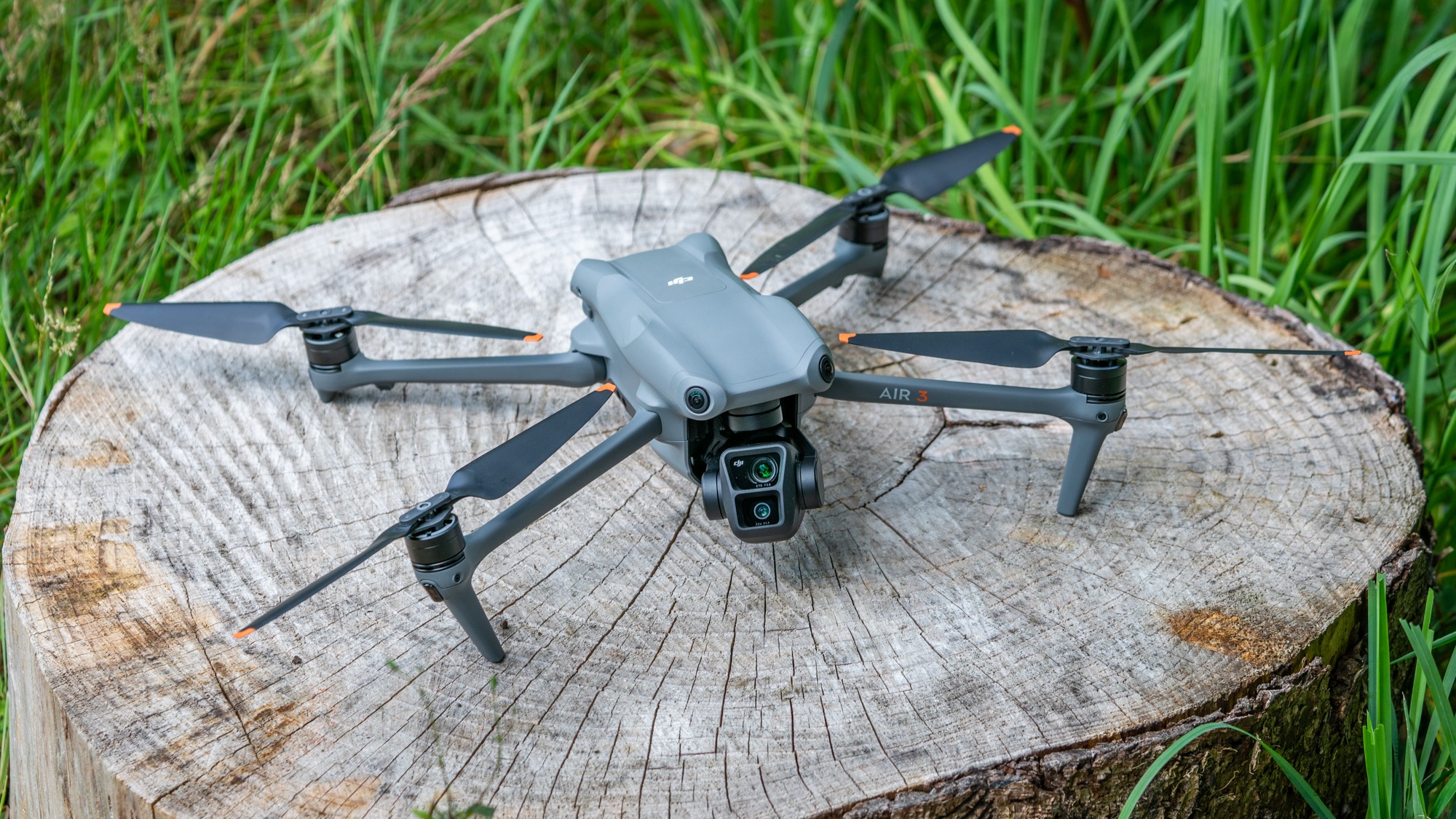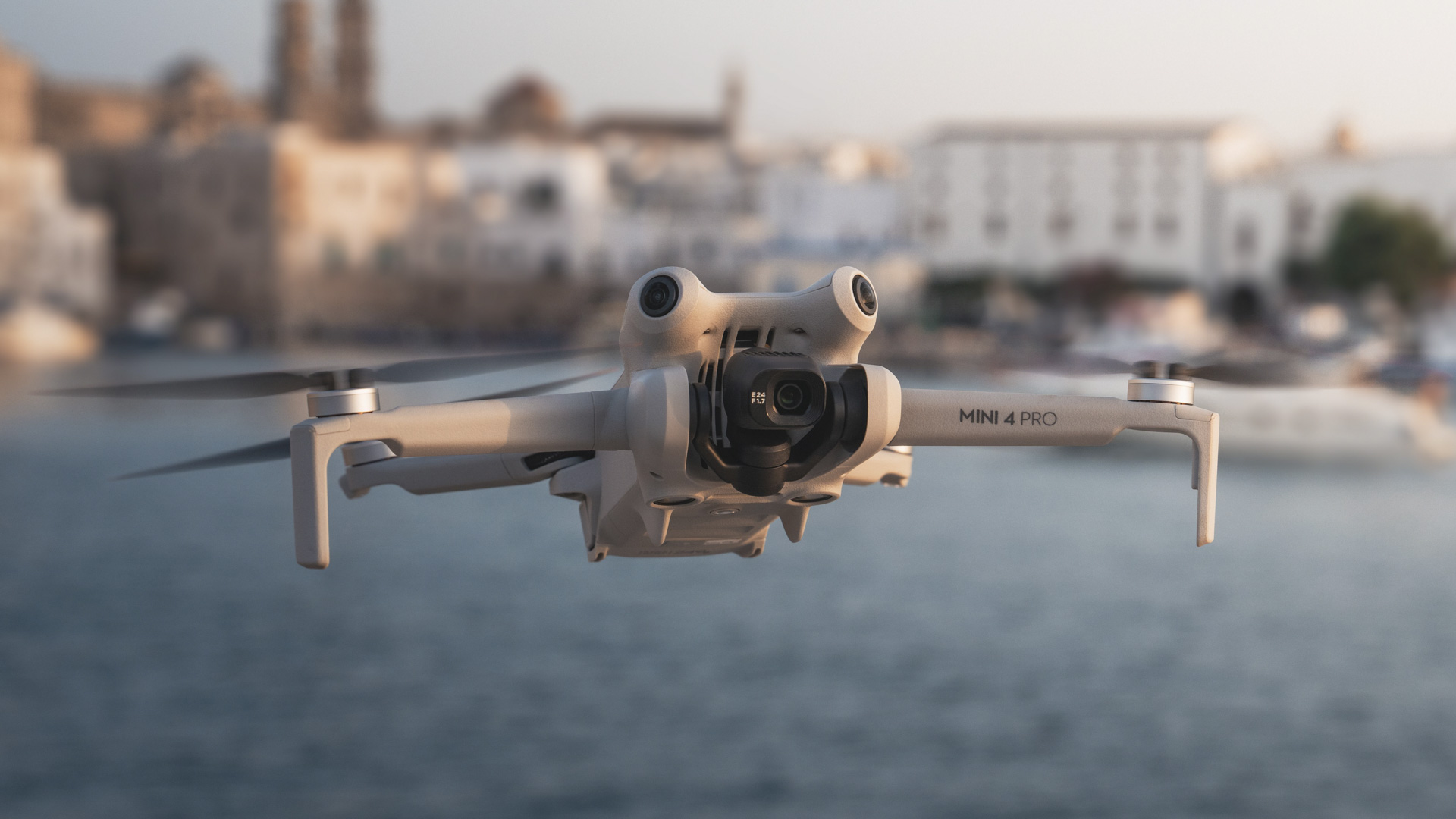DJI responds to new US drone ban law passed by FCC – here's what it means for you
A ban is getting closer

- The FCC wants to retroactively ban gadgets under national security
- It's a move that could end up affecting older DJI models
- A ban on DJI drones will probably come into force by the end of the year
The threat of DJI products being banned in the US has been casting a shadow for several years now, and now there's another development: the US Federal Communications Commission (FCC) has voted to give itself further powers to retroactively ban gadgets deemed to present a security risk.
What that means in practice (via The Verge) is that the FCC can now add "radio frequency devices" to its database of banned products – called the Covered List – even if they've previously been sold in the country. If a company (such as DJI) gets banned in the future, the FCC can go back and remove older products from sale too. And DJI has now responded to the news.
"DJI is not included on the FCC's Covered List, so this change to the rules does not currently apply to DJI," Adam Welsh, Head of Global Policy at DJI, told TechRadar. "However, under the FY25 National Defense Authorization Act (NDAA), a national security agency must complete a risk assessment of DJI drones by December 23, 2025."
"If that assessment is not completed by the deadline, DJI and another Chinese drone manufacturer would automatically be added to the FCC's Covered List, without any evidence of wrongdoing or the right to appeal."
In other words, nothing much changes immediately. However, time is running out before DJI will be added to the Covered List by default – and once that happens, older hardware as well as new devices could be under threat from the FCC.
"DJI has repeatedly expressed its readiness to take part in a transparent, timely, and fair audit through official channels," continues Welsh. "More than ten months have now passed with no sign that the process has begun. As the deadline approaches, we urge the US government to start the mandated review or grant an extension to ensure a fair, evidence-based process that protects American jobs, safety, and innovation."
"The US government has every right to strengthen national security measures, but this must go hand in hand with due process, fairness, and transparency."
Sign up for breaking news, reviews, opinion, top tech deals, and more.
If you have a DJI drone or are thinking about buying one, you probably have several urgent questions – here's what you need to know.
What is the new law?
This rather complicated legal situation has several layers to it, but the latest law essentially lets the FCC go back and pull the sale of older devices, once their manufacturer is added to the Covered List. Furthermore, it extends to gadgets with "modular transmitters" made by a manufacturer, even if the device isn't sold under the main company brand name.
It tightens up some of the loopholes that banned companies may have used, such as making minor adjustments to products to keep them on sale, or putting their core equipment inside devices sold by partner manufacturers. But in terms of DJI, it's really the retroactive aspect that's most important.
What's more pressing is the National Defense Authorization Act mentioned above. For companies like DJI, the act means they need to be audited by Tuesday, December 23 to get security clearance – and despite DJI's willingness to be reviewed (and confidence that it would pass the tests), an audit by US agencies has yet to happen.
That means a US ban on new DJI devices looks increasingly likely – and the new FCC law could also affect older drones too.
What does this mean for the DJI drone ban?

The new law doesn't really affect the prospects of a DJI drone ban directly, but with or without the latest FCC ruling, time is running out to prevent a ban coming into place. Given the continuing shutdown of the US government, it looks increasingly unlikely that DJI is going to get its audit or avoid going on the Covered List.
DJI drones will therefore probably be banned in the US by default before the end of the year – due to deadlines passing rather than any new proactive action taken by the authorities. And with the new FCC ruling now in place, there could be problems for older drones too.
In reality, it's been tricky to get DJI drones in the US for some time, because of the regulatory uncertainty – stock and availability of models such as the new DJI Mini 5 Pro isn't necessarily guaranteed if you're buying in the US, even if there's not yet an official ban on DJI (or even a mention of the company in the FCC's documentation).
How will it affect owners of existing DJI drones?

While it's difficult to say for sure what the FCC will do, it does now have the power to retroactively ban previously approved DJI products, as well as any new device launches. These bans would be on a case-by-case basis, apparently with public consultation – it wouldn't involve previously purchased drones being yanked out of people's hands, but they might be taken off store shelves.
So if you've already bought a DJI drone (or another DJI gadget) before December 23, you'll be able to keep it. However, if the FCC takes steps to go back and restrict the communications capabilities of older drones, you might encounter problems such as issues with cloud connectivity, or DJI could end up not being able to update its apps in the US. It may also be harder to get replacement parts. None of this is certain, but those are now possibilities.
It's similar to the ban on Huawei gadgets that came into force in 2019. Even if you somehow manage to import a Huawei phone released since 2019 into the US, it's not going to work on the country's wireless network infrastructure.
That's likely to apply to new DJI drones launched after December 23, 2025, and other models are at varying levels of risk too.
Follow TechRadar on Google News and add us as a preferred source to get our expert news, reviews, and opinion in your feeds. Make sure to click the Follow button!
And of course you can also follow TechRadar on TikTok for news, reviews, unboxings in video form, and get regular updates from us on WhatsApp too.

Dave is a freelance tech journalist who has been writing about gadgets, apps and the web for more than two decades. Based out of Stockport, England, on TechRadar you'll find him covering news, features and reviews, particularly for phones, tablets and wearables. Working to ensure our breaking news coverage is the best in the business over weekends, David also has bylines at Gizmodo, T3, PopSci and a few other places besides, as well as being many years editing the likes of PC Explorer and The Hardware Handbook.
You must confirm your public display name before commenting
Please logout and then login again, you will then be prompted to enter your display name.